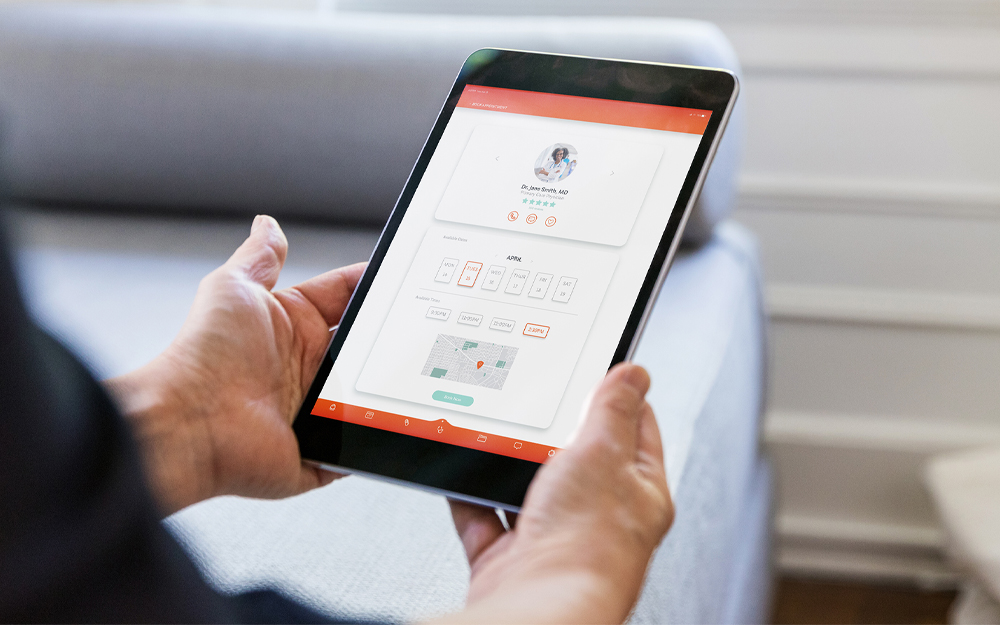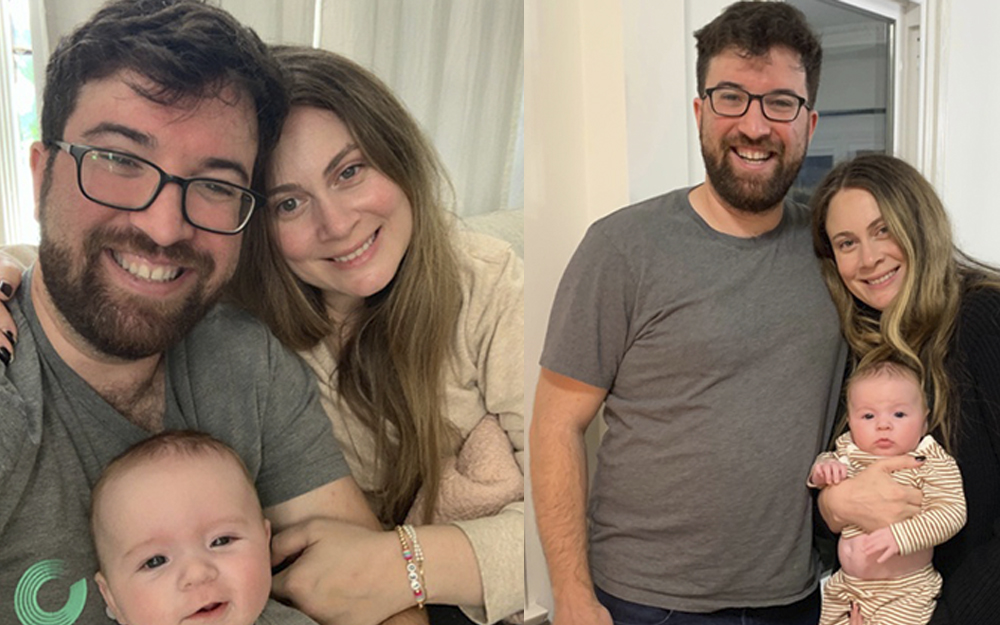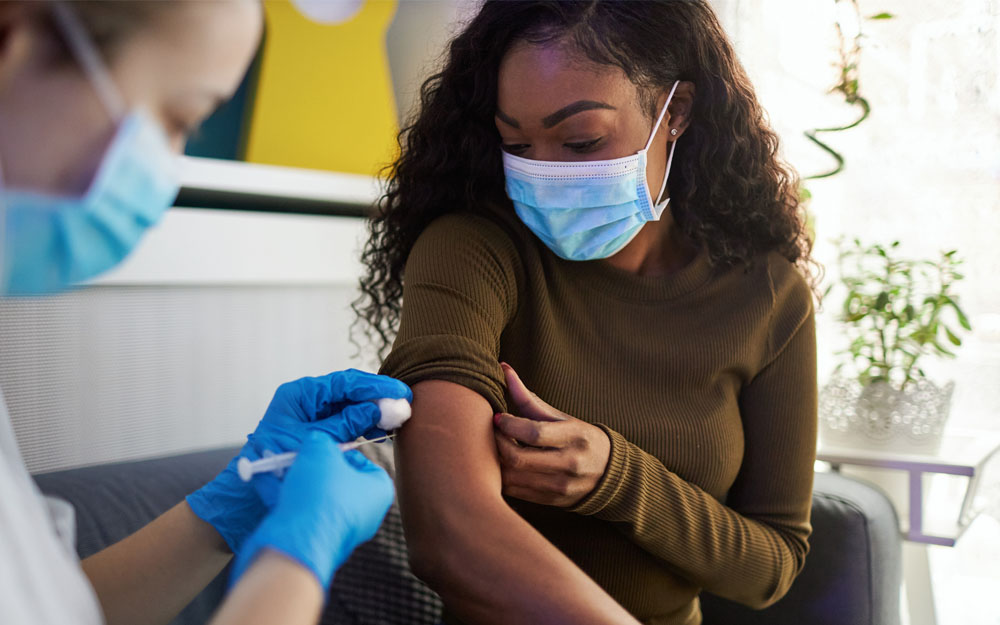How Women in Their 30s Can Prioritize Their Health
Date
March 11, 2024

Date
March 11, 2024
Credits
Medical providers featured in this article




In Brief
{{cta-block}}
Many women in their 30s are hitting their stride personally and professionally. After working for a decade or more, they may feel accomplished in their career. They may also be in a stable relationship and possibly thinking about getting pregnant, if they haven’t already started a family.
If you’ve seen new laugh lines or an errant gray hair, it may remind you that you aren’t a kid anymore. Your 30s are a great time to evaluate your lifestyle, then make changes to prioritize your health.
For many women in their 30s, the thought of becoming a parent inspires better choices.
“Pregnancy is a useful time to start new health patterns,” said Gabriela Dellapiana, MD, a maternal-fetal medicine specialist at Cedars-Sinai. “It’s a great motivator, because you’re now thinking about this new human. You tend to make more healthful choices, in terms of diet and physical activity, and abstinence from alcohol and drugs.”
But if you’re happily childless, the 30s are still a great time to lock in habits for a longer life—and health span.
{{providers}}
Adopt Self-Care
In the past, you may have only had to care for yourself. If you have a partner, a child or a baby on the way, it’s important to prioritize your health, so that you can be at your best when others need you. Whether you’re partnered or flying solo, career pressures and complex relationships may sap your spare time. Don’t let “adulting” stand in the way of well visits and vaccinations to minimize illnesses. And the baseline advice applies: Eat a nutrient-dense diet, exercise regularly, maintain a healthy weight and get enough sleep.
Try to eat whole foods, with an emphasis on plant-based choices.
“Avoid fad diets that lead to disordered eating, which is different from an eating disorder,” Dellapiana said. “They lend to yo-yo-ing—weight gain then weight loss—leaving you heavier than where you started.”
Find ways to move more and sit less. Not only will it help you maintain a healthy weight, but regular exercise helps reduce the risk of depression, anxiety, heart disease, stroke, Type 2 diabetes, high cholesterol, high blood pressure and pregnancy complications, according to Dellapiana.
It may be difficult for women in their 30s to squeeze these good habits into their routines, since they’re busy caring for others, focusing on their careers and managing a household, but it’s possible to find hacks that work for you.
“We have to think outside the box, at times, to eat right and move our bodies when we are juggling it all,” said Eynav Accortt, PhD, a clinical psychologist and director of Cedars-Sinai’s Reproductive Psychology Program. “Remember that there is no ‘perfect,’ and don’t compare your current self to your 20s self.”
Aim for 30 minutes of moderate physical activity daily, plus two days of muscle-strengthening exercise weekly, which benefits your bones.
“Women start losing their bone density at age 35, and you lose a certain percent every year, no matter what you do,” Dellapiana said. “For bone health, you need 1,000 mg calcium daily, 600 IUs of vitamin D daily and weight-based exercises. It can be weightlifting or running on hard ground, because the impact helps to bulk the bone.”

Pamper Your Skin
To maintain youthful-looking skin, stay well hydrated, use sunscreen and moisturizer, don’t smoke and limit sun exposure.
“The only safe way to get a ‘tan’ while keeping your skin healthy is with self-tanners or spray tans,” said Sravya Bhatia, MD, a dermatologist at Cedars-Sinai. “There are a lot of great products on the market that don’t make you orange and streaky. By protecting your skin from the sun, you’ll reduce your risk of premature aging and skin cancers.”
A growing number of people in their 20s and 30s are getting skin cancer. Monitoring your skin monthly may help you catch problems early.
“We still develop moles into our 30s, and it’s good to do skin self-checks at home regularly,” Bhatia said. “If you see something changing, see your doctor.”
Make A Pregnancy Plan... Or Don’t
Planning to become pregnant? Take prenatal vitamins and confirm that your vaccinations are up to date, including flu, chicken pox and rubella. Meet with your OB-GYN to find out how soon your fertility should return after you stop using birth control.
“All contraceptives have a pretty immediate return to fertility—weeks or months,” said Natasha Schimmoeller, MD, a Cedars-Sinai OB-GYN. “People think, ‘There’s going to be a delay of a couple months.’ Often, people are surprised to get pregnant right away.”
Once you’re pregnant, see your OB-GYN for regular prenatal visits throughout pregnancy.
“The best way to have a positive outcome is to access care,” said Elizabeth Kim, MD, a Cedars-Sinai OB-GYN. “Pregnancy automatically qualifies women in the state of California for Medi-Cal, so they can receive prenatal care.
“Some women make a conscious choice to be childless and are content with the decision,” Accortt said. “However, their relatives or friends may continually ask when they’re planning to become pregnant. The same may be true for parents of an only child who aren’t planning to have another. Talking about your decision with loved ones may help them see that you’re happy to be childless.”
“Share how you are feeling with close family and friends, and set and maintain boundaries around these conversations,” Accortt said. “For example, say outright, ‘We are happy with our family of two—or three, if you have one child—and we are complete. Please stop asking us when we will have children—or another baby. Thanks for respecting this request.’ People will simply keep asking if they aren’t told to stop. They might mean well, however, it’s up to you to set and maintain the boundary.”
More from this series: How Women Can Strengthen Their Health at Any Age
Seek Fertility Assistance, As Needed
If you’re in your early 30s and haven’t gotten pregnant after 12 months of trying, talk to a doctor about infertility. If you’re 35 or older, seek help if you don’t conceive within six months.
“There’s nothing magical about 35, like your fertility falling off a cliff,” said Jessica Chan, MD, a reproductive endocrinologist at Cedars-Sinai. “That’s the point where we start seeing both the number and quality of the eggs diminishing. More patients present at around that age with infertility, recurrent miscarriages or genetic problems in pregnancies.”
Consider fertility preservation by 35 if you aren’t ready to get pregnant but may wish to in the future. Reproductive endocrinologists can freeze your eggs (or your embryos, if you have a partner).
“Fertility preservation is one of the most visible things right now,” Chan said. “I’ve seen a huge uptick in folks seeking fertility preservation services.”
It isn’t for everyone, but fertility preservation serves an important purpose.
“It can take a little stress off, if you haven’t met a partner that you’d like to have a family with or you simply aren’t ready,” Accortt said.
Learn About Fertility Treatments
Some women in their 30s need assistance to have babies. Reproductive endocrinologists offer these fertility interventions to patients:
- Intrauterine Insemination: Healthy sperm is inserted into the uterus when a woman is ovulating, which may result in pregnancy.
- Medication: Certain medications may help women with conditions such as polycystic ovary syndrome ovulate, increasing their chances of becoming pregnant.
- In-Vitro Fertilization: Women take fertility medication to mature several eggs at once, which are removed from the ovaries. The eggs are combined with sperm in a laboratory setting to create embryos. A healthy embryo is then placed in the uterus.
- Cryopreservation: Doctors can freeze sperm, eggs or embryos for future use. Cancer patients may preserve their fertility this way. People who aren’t ready to become parents yet may benefit from this technology.
- Donor Assistance: Patients can use donor sperm, eggs or embryos to become pregnant. This may be necessary when one partner experiences infertility, when same-sex couples wish to become parents or when a patient without a partner wants to conceive.
- Surrogacy: A gestational carrier is contracted to carry a pregnancy, when a traditional pregnancy isn’t an option. Partners may use IVF to create an embryo with their own sperm and eggs, or donor sperm, eggs or embryos may be used. An embryo is implanted in the surrogate’s uterus.
Consider Your Pelvic Floor
Pregnancy may weaken or damage your pelvic floor muscles, which help you pee, poop and have sex. It may cause incontinence or pelvic floor prolapse (internal organs dropping). Strengthening those muscles in your 30s may help avert complications.
“I feel very strongly about women having it on their radar to see a pelvic floor physical therapist after delivery to check the function and the anatomy of their pelvic floor,” Accortt said. “They could prevent surgery later, if they get physical therapy early enough.”
Prioritize Mental Health
Women of any age, including those in their 30s, may experience anxiety or depression. Your primary care provider may prescribe medication or refer you to a therapist or psychiatrist.
Be mindful of mental health concerns during and after pregnancy, when the risk for depression or anxiety is at an all-time high.
“It’s normal, and there’s nothing wrong with them,” Kim said. “There are medications and treatment options available during pregnancy.”
Don’t hesitate to ask your doctor for help during pregnancy and the postpartum period.
“Some symptoms immediately after delivery are common. Known as “baby blues,” they may occur in the first two weeks. But when your symptoms interfere with your functioning after that period, they’re not going to go away on their own and require an intervention,” Accortt said.
Anyone in their 30s can experience anxiety or depression, including women who are childless by choice and women who have children but haven’t been pregnant in several years. Whether or not you’re pregnant, your primary care provider will offer the same care, such as prescribing medication or referring you to a professional for therapy or counseling.






